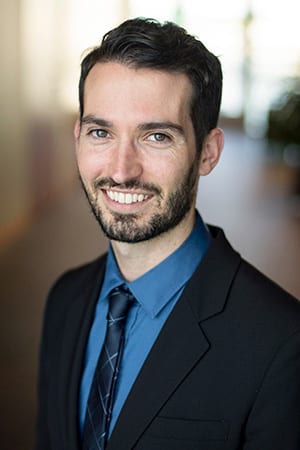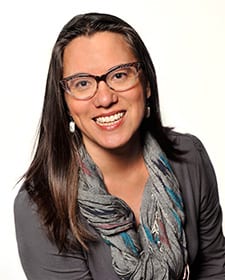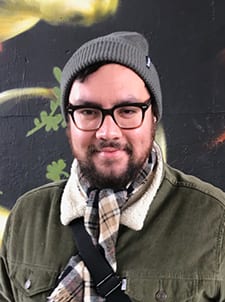By Andrew Cohen

Berkeley Law graduates are making a big impact at the Southern Poverty Law Center (SPLC), a major legal advocacy nonprofit specializing in civil rights and public interest litigation. Spanning different offices and specialties, alums have scored some notable recent victories.
Working in Montgomery, Alabama, Micah West ’13 is pushing to end wealth-based pretrial detention in the South. He recently helped reach a settlement with the State of Mississippi, which suspended driver’s licenses of those did who not pay traffic fines before determining whether they were indigent.
West investigated state practices and helped draft the pleadings in the case. Mississippi ultimately agreed to stop suspending licenses solely for non-payment—and to reinstate those previously suspended for that reason.
“This resolution will likely impact over 100,000 people,” says West, who won Berkeley Law’s Sax Prize for Excellence Clinical Advocacy as a 3L. “It’s particularly exciting to see this happen in Mississippi, the poorest state in the country with one of the least developed transportation systems, where about 95 percent of people rely on cars to get to work.”
In another Mississippi case, West challenged a court that was jailing individuals for non-payment of fines and fees. A preliminary agreement led to the release of about 40 people from jail. The City and Municipal Court judge in the case also agreed to no longer jail people for non-payment, release everyone on their own recognizance, and not enforce outstanding warrants while they negotiate a permanent settlement.
While pushing for statewide reform in Alabama, West and his SPLC colleagues have swayed 77 municipalities to reform their bail practices. As a result, jail populations in many of Alabama’s largest cities have been cut in half in just one year.
West’s jailed clients include a man who could not pay a $450 fine assessed after he stole $5 worth of meat to feed his family; a wheelchair-bound man unable to pay three traffic tickets he incurred before a car accident caused his leg to be amputated; and a former member of the National Guard, then 7½ months pregnant, who could not afford bond.
Many southern jurisdictions use a bail schedule and require those arrested to pay a pre-set amount, based on the charge, to be released from jail pretrial.

“If you can’t pay the amount required, you can rot in jail for months,” West says. “The devastation caused by money bail is particularly pernicious in rural areas, where the grand jury may sit and trials may be held only twice a year. Even two or three days in pretrial detention can cause people to lose their housing, jobs, or child custody.”
West’s scholarship also paid dividends in a suit against the New Orleans Criminal District Court. Plaintiffs leaned on his California Law Review article to show that funding for the court violated the 14th Amendment because it relied heavily on fines and fees revenue from sentenced defendants—creating a conflict of interest for judges.
“Micah’s detailed research … gave our complaint on this issue such force and paved the way for our due process arguments,” says Civil Rights Corps Executive Director Alec Karakatsanis.
Immigration impact
Working in Atlanta, Naomi Tsu ’05 is deputy legal director of SPLC’s Immigration Justice Project, which has nearly quadrupled in staff during her 10 years there. She was counsel for immigrant workers in David v. Signal, one of the nation’s largest labor trafficking cases, which yielded a $14 million jury verdict and a Public Justice 2015 Trial Lawyer of the Year award for her legal team.

Under Tsu’s leadership, SPLC launched its Southeast Immigrant Freedom Initiative, which trains lawyers and law students to represent detained immigrants seeking release on bond to reunite with their families. She recently spent a week at a Georgia detention center conducting intakes with people who had fled threats and violence in Central America.
“These men asked for asylum at the U.S. border, but were locked up while their cases were pending,” she says. “There’s so much to do to change the culture of impunity that infects some immigration courts, and I’m lucky to be able to do that work.”
Sarah Rich ’11 interned at SPLC after her 2L year and returned full-time in 2014. Now working under Tsu in Atlanta, she was part of a class action team representing hundreds of Jamaican guest workers at a luxury golf resort in South Carolina. The case settled for more than $2 million for the workers.
Rich, who helped create Berkeley Law’s International Refugee Assistance Program as a student, has also improved working conditions for poultry workers. She helped convince the U.S. Department of Agriculture not to grant an industry petition to abolish all limits on the speed of processing lines in poultry plants.

“I find all of my work meaningful and important,” says Rich, “whether we’re advocating for a single immigrant whose civil rights were abused, a class of workers who were taken advantage of, or the basic principle that all people have equal dignity and deserve fair treatment.”
Bryan Lopez ’15, who participated in the East Bay Community Law Center’s Immigration Program during law school, joined SPLC’s Immigrant Justice Project (New Orleans office) in December. His family migrated to the U.S. during the Salvadoran Civil War.
“My parents benefited from a one-time fluke in American politics, the Immigration Reform and Control Act, which allowed them to adjust their status because they entered the U.S. during the right window of time,” Lopez says. “But for that extraordinary circumstance, I’d be fighting for my family to stay together. The least I could do for my parents’ sacrifice is to fight for the dignity and rights of those who weren’t as lucky.”
Other highlights
• Zoe Savitsky ’11, deputy legal director of children’s rights work at SPLC, leads teams that strive to stop the school to prison pipeline, fight for educational equity, and protect children’s access to vital health services. In the 2018 legislative session, her staff collaborated with other groups to successfully defeat multiple bills in multiple states that would have created new private school vouchers and taken much-needed funds away from struggling public schools.
She also oversaw a high-profile suit against Mississippi for violating terms of its full readmission to the Union, which required the state to never reduce the education rights guaranteed to children. SPLC filed on behalf of four African-American families whose children attend what Savitsky calls “awful public schools, schools that would never have been permissible if the rights guaranteed in the state’s 1868 Constitution were still in place.” She adds, “Where you are born, who your parents are, the language you speak, the color of your skin—none of those facts should prevent children from accessing a high-quality public education or high-quality health services.”
• Shalini Agarwal ’06, managing attorney of SPLC’s Florida office, works to advance criminal justice reform in the state. Her efforts helped qualify the Voting Restoration Amendment for Florida’s November 2018 ballot, which would automatically restore voting rights to people with felony convictions after they complete their sentences.
“Currently, over 1.5 million Floridians are stripped of the right to vote because of a prior felony conviction,” Agarwal says. “If the amendment succeeds, most of these individuals will regain that right.”
• Jacqueline Aranda ’15, now a federal judicial clerk, helped SPLC win a class action suit which found that Alabama prisoners receive constitutionally inadequate mental-health care. Aranda defended depositions, drafted briefs, examined witnesses, and managed nearly 2,000 trial exhibits.
• Lydia Wright ’14, now at a small firm in New Orleans, helped file two lawsuits on behalf of public school students in Mississippi. One confronted the diversion of taxpayer dollars from public schools to charter schools, the other inequitable conditions for African American students.
“Berkeley Law’s emphasis on social justice and public service made a career in civil rights litigation seem feasible,” Wright says. “But, just as important, I left with enough substantive knowledge and practical skills to actually make a difference.”